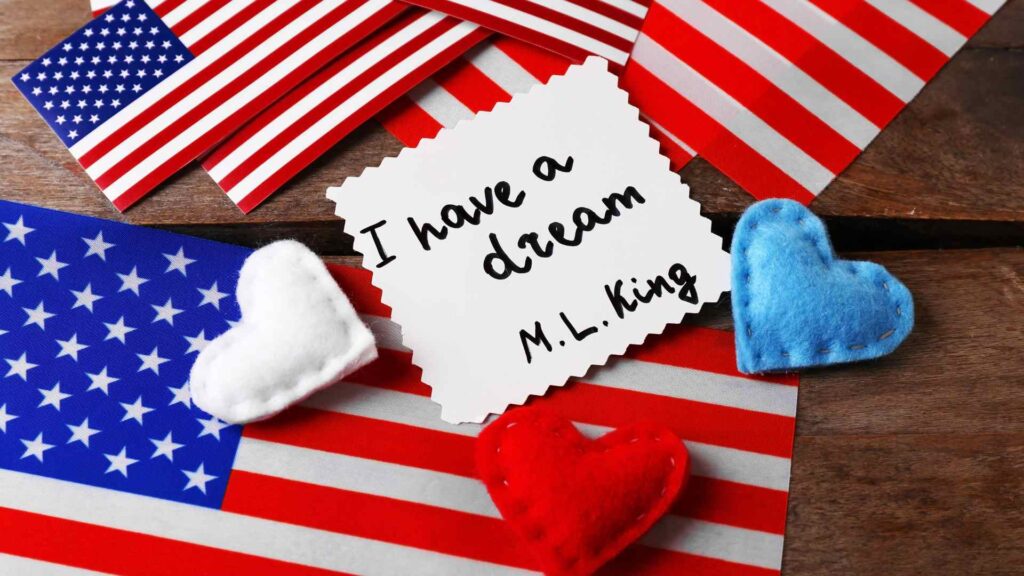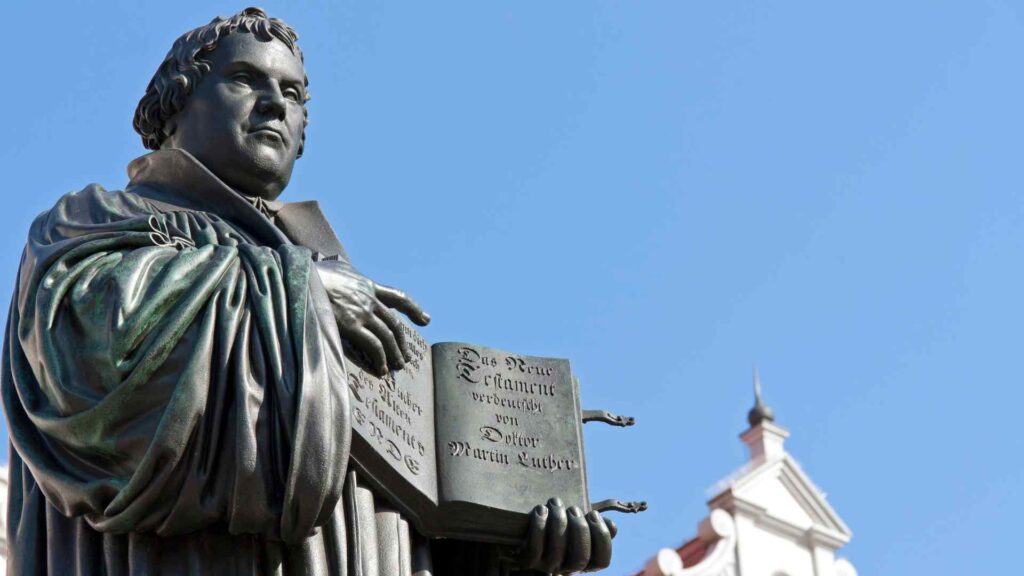Martin Luther King Jr. remains a towering figure in American history, celebrated for his pivotal role in the Civil Rights Movement.
Beyond his iconic “I Have a Dream” speech, King’s life was filled with surprising, inspiring, and lesser-known stories.
This guide uncovers 145 fun facts about Martin Luther King Jr., divided into categories that bring his legacy to life.
Early Life and Childhood
- Martin Luther King Jr. was born on January 15, 1929, in Atlanta, Georgia.
- His birth name was Michael King Jr., later changed to Martin in honor of the Protestant reformer Martin Luther.
- He was the second child in a family of three siblings.
- King’s father was a preacher, influencing his path into ministry.
- At age 6, he was deeply affected when a white friend’s parents forbade them from playing together due to racial segregation.
- As a child, he was nicknamed “ML.”
- King skipped two grades and entered Morehouse College at age 15.
- Despite initial doubts, he followed his father into ministry during his sophomore year at Morehouse.
- He earned a sociology degree from Morehouse College in 1948.
- King was inspired by the writings of Henry David Thoreau on civil disobedience.
- As a teenager, King won a statewide public speaking contest.
- His favorite subject in school was history.
- King’s early writings show a deep commitment to justice and equality.
- He was a Boy Scout in his youth.
- Music played a big role in his childhood; he loved gospel and hymns.

Education and Academic Achievements
- Martin Luther King Jr. earned a Bachelor of Divinity degree from Crozer Theological Seminary in Pennsylvania.
- He graduated as the valedictorian of his class in 1951.
- King pursued his Ph.D. in theology at Boston University, which he completed in 1955.
- He was deeply influenced by the teachings of Mahatma Gandhi.
- King’s dissertation explored the teachings of Paul Tillich and Henry Nelson Wieman.
- He met Coretta Scott, his future wife, while studying in Boston.
- His professors recognized him as an exceptional student with a passion for social justice.
- King was fluent in several languages, including Latin.
- He often cited philosophers such as Hegel and Kant in his sermons.
- His time in Boston exposed him to diverse racial and cultural experiences.
- King wrote extensively about the intersection of theology and social change.
- He received numerous academic awards for his scholarship.
- His first published article appeared in a theological journal during his Ph.D. studies.
- King gave lectures on theology while still a student.
- His doctoral thesis later became a foundation for his activism.
Civil Rights Leadership
- Martin Luther King Jr. became the pastor of Dexter Avenue Baptist Church in Montgomery, Alabama, in 1954.
- At age 26, he led the Montgomery Bus Boycott after Rosa Parks’ arrest.
- The boycott lasted 381 days and led to the desegregation of Montgomery’s buses.
- King was arrested over 20 times during his lifetime.
- He co-founded the Southern Christian Leadership Conference (SCLC) in 1957.
- King’s leadership emphasized nonviolent resistance.
- He delivered over 2,500 speeches during his career.
- King worked with Presidents Kennedy and Johnson to advance civil rights legislation.
- The March on Washington in 1963 drew over 250,000 people.
- King’s “I Have a Dream” speech was delivered on the steps of the Lincoln Memorial.
- He received the Nobel Peace Prize in 1964 at the age of 35, the youngest recipient at the time.
- King’s efforts led to the Civil Rights Act of 1964 and the Voting Rights Act of 1965.
- He campaigned for economic justice through the Poor People’s Campaign.
- King supported striking sanitation workers in Memphis in 1968.
- His final speech, “I’ve Been to the Mountaintop,” was delivered the night before his assassination.

Personal Life and Hobbies
- King married Coretta Scott on June 18, 1953.
- They had four children: Yolanda, Martin III, Dexter, and Bernice.
- He was a fan of jazz and blues music.
- King loved playing baseball as a child.
- He enjoyed reading classic literature, including works by Tolstoy and Shakespeare.
- King often traveled with a Bible and a book of poetry.
- He was a skilled piano player.
- King enjoyed cooking, especially Southern cuisine.
- His favorite meal was fried chicken with collard greens.
- King loved spending time with his family and playing board games.
- He frequently attended cultural events, including theater performances.
- King was known for his sense of humor among close friends.
- He maintained a journal throughout his life.
- King loved to travel and visited several countries during his life.
- He enjoyed photography as a hobby.
Legacy and Honors
- Martin Luther King Jr. Day was established as a federal holiday in 1983.
- Over 900 streets in the United States are named after him.
- He is the only non-president to have a national holiday in his honor.
- The King Center in Atlanta preserves his legacy.
- King’s birthplace and grave are part of a national historic site.
- He posthumously received the Presidential Medal of Freedom in 1977.
- King was Time magazine’s Man of the Year in 1963.
- A memorial honoring King was dedicated in Washington, D.C., in 2011.
- His speeches are taught in schools worldwide.
- The Nobel Prize Committee described his work as “a light in dark times.”
- Several countries, including Canada and Japan, honor his contributions.
- King’s life inspired numerous films and documentaries.
- He has been quoted by leaders across the political spectrum.
- King’s philosophy of nonviolence is studied globally.
- His teachings influenced movements for justice worldwide.

Bonus Fun Facts
- King traveled to India to study Gandhi’s philosophy.
- He was arrested for “loitering” during his first protest.
- King’s favorite hymn was “Precious Lord, Take My Hand.”
- He experienced death threats throughout his career.
- King’s “Letter from Birmingham Jail” was written on scraps of paper.
- He was an avid chess player.
- King advocated for peace during the Vietnam War.
- The FBI monitored King extensively.
- King spoke at over 20 colleges and universities.
- He had a deep admiration for President Abraham Lincoln.
- King’s “I Have a Dream” speech was improvised.
- He loved reading detective novels in his free time.
- King delivered a sermon at St. Paul’s Cathedral in London.
- He met with Pope Paul VI during a trip to Rome.
- King’s children followed in his footsteps as activists.
- He was posthumously awarded the Congressional Gold Medal.
- King appeared on the cover of Ebony magazine multiple times.
- He inspired the creation of Black History Month.
- King visited South Africa during apartheid.
- His voice recordings are preserved in the Library of Congress.
- Martin Luther King Jr. was awarded over 20 honorary degrees during his lifetime.
- He was a co-pastor with his father at Ebenezer Baptist Church in Atlanta.
- King’s house was bombed during the Montgomery Bus Boycott.
- He received the Spingarn Medal from the NAACP in 1957.
- His iconic “I Have a Dream” speech is preserved in the National Recording Registry.
- King marched with sanitation workers in Memphis, Tennessee, shortly before his assassination.
- Coretta Scott King founded The King Center to honor his legacy.
- King’s favorite dessert was pecan pie.
- He was inspired by Benjamin Mays, president of Morehouse College.
- King’s Nobel Peace Prize winnings were donated to the Civil Rights Movement.
- The “King of Love” speech was delivered after his assassination by his close friend Ralph Abernathy.
- King was the subject of a comic book titled “Martin Luther King and the Montgomery Story.”
- He participated in the Freedom Rides to desegregate interstate buses.
- King’s sermons often addressed economic inequality alongside racial justice.
- He was a founding member of the Southern Christian Leadership Conference (SCLC).
- His writings were influenced by Reinhold Niebuhr’s theology.
- King’s work inspired the Civil Rights Movement in Northern Ireland.
- He refused to own guns, even after receiving death threats.
- His favorite leisure activity was spending time with his children.
- King was friends with Jackie Robinson, the first African American in Major League Baseball.
- He maintained correspondence with figures like Albert Einstein and Eleanor Roosevelt.
- He was deeply opposed to colonialism in Africa and supported independence movements.
- King’s “Poor People’s Campaign” sought economic justice for all races.
- He met Malcolm X once, though they had differing ideologies.
- King was the youngest person to receive the Nobel Peace Prize at the time.
- He faced criticism from some civil rights groups for his nonviolent approach.
- King’s speeches often included themes from the Bible and classical literature.
- He delivered over 40,000 pages of speeches and writings during his career.
- King suffered from depression during his teenage years.
- His letter from Birmingham Jail addressed critics who opposed his activism.
- He helped organize the Selma to Montgomery marches, which influenced the Voting Rights Act of 1965.
- King believed in economic boycotts as a form of peaceful protest.
- His influence extended to the anti-apartheid movement in South Africa.
- King’s favorite singer was Mahalia Jackson, who sang at the March on Washington.
- He was inspired by the idea of a “Beloved Community,” where equality and justice prevail.
- King once gave a sermon titled “The Drum Major Instinct,” emphasizing service to others.
- His house in Montgomery is now a historic museum.
- King visited Ghana during its independence celebrations in 1957.
- He was an avid supporter of student activists during the sit-in movement.
- His final sermon, “Unfulfilled Dreams,” was delivered in Washington, D.C.
- King’s mother, Alberta Williams King, was also tragically assassinated.
- He wrote five books during his lifetime.
- King’s influence shaped the Civil Rights Act of 1968, addressing housing discrimination.
- His activism led to the desegregation of public libraries in the South.
- King advocated for an international coalition to address global inequality.
- He worked closely with civil rights leaders like Bayard Rustin and John Lewis.
- His family established The Martin Luther King Jr. Papers Project to preserve his writings.
- King was influenced by the African American spiritual tradition.
- He is honored in more than 100 countries worldwide.
- Martin Luther King Jr.’s teachings continue to inspire new generations of activists and leaders.
Conclusion
Martin Luther King Jr.’s life is a testament to courage, resilience, and hope. These 145 fun facts showcase his extraordinary journey, offering inspiration to dream big and strive for justice.
